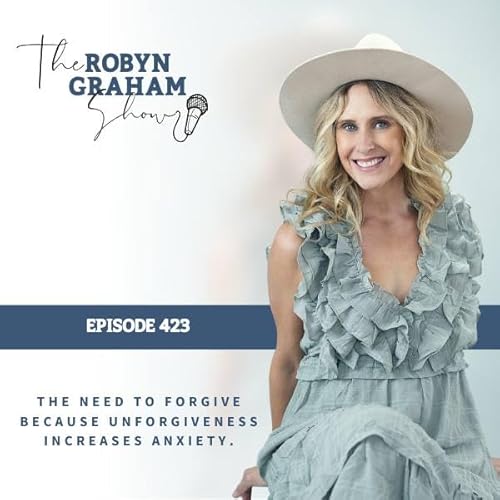Unforgiveness disrupts your ability to feel calm and keeps you stuck in a cycle of negative emotions, feelings, and thoughts about yourself or others. Notice, if you are feeling anxious, irritable, or unfulfilled for a period of time, it could be that unforgiveness and anxiety have partnered to disrupt your nervous system regulation. Perhaps you are striving to please people, feeling exhausted by the need to control, or living in a constant drive for perfection. Everyone sins, therefore everyone needs forgiveness. The connection between unforgiveness and anxiety. If we harbor unforgiveness in our hearts, whether toward ourselves or others, fear and shame grow. Anxiety is an abnormal sense of fear. And it is our nervous system's way of keeping us safe. So if anxiety is building, our nervous system is dysregulated, and therefore we are not able to access our pre-frontal cortex to make good, effective, meaningful decisions. In addition, shame results in fear and nervous system dysregulation. Nervous system dysregulation When the nervous system is dysregulated for long periods, it can manifest in your body and reduce overall well-being. First, your brain is operating from the limbic system and relying on fight, flight, freeze, or fawn responses. Here's what happens in each state: Fight: You become irritated. Instead of responding to others or situations, you overreact. Overreaction leads to more shame, guilt, and disruption in relationships. Flight: You run, and avoid. Freeze: You feel stuck. Fawn: People-pleasing becomes part of your identity. Nervous system regulation strategies: Breath Pray Practice gratitude Get creative - color, doodle, write, draw, paint, etc. Go for a walk Spend time in nature Get sunlight Journal Read Connect - spend time with family or friends Tapping Hum Listen to music Laugh Cry Practice mindfulness Progressive muscle relaxation Confirmation that unforgiveness and anxiety go together Proverbs 10:12 Matthew 6:14-25 1 John 1:9 Luke 6:37 Colossians 3:13 (ESV) Mark 11:25 (ESV) Forgiveness is hard. Unforgiveness is easy, until it's not. Forgiveness awaits. Read the full show notes and access all links. If you are struggling with anxiety or would like to start a journaling practice that includes Scripture verses, download our free resources today. Schedule a free consultation discovery call with Robyn. Links for You, Me, and Anxiety: Parent Book Teen Book
Voir plus
Voir moins
 26 min
26 min 58 min
58 min 25 min
25 min Feb 3 202650 min
Feb 3 202650 min 41 min
41 min 39 min
39 min 54 min
54 min 29 min
29 min
